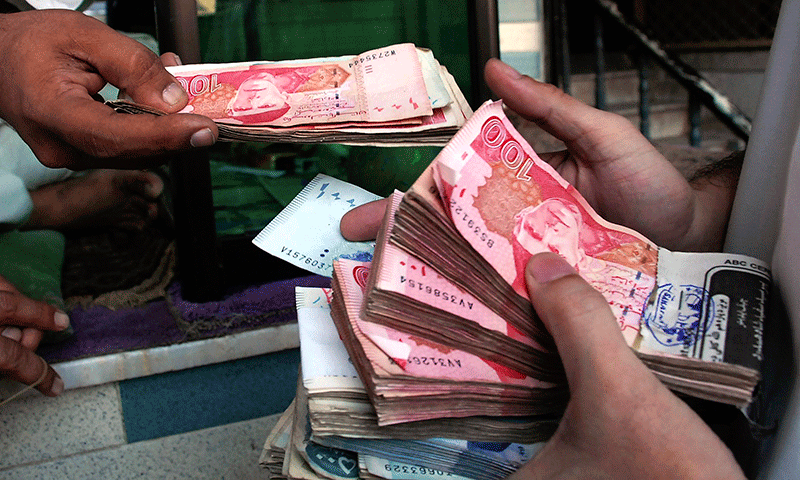KARACHI: Pakistan’s fish and fish preparation exports went up by 20 per cent in quantity and 21.35pc in value during 2016-17 due to price increase in world markets and higher landing of the catch.
However, the Marine Fisheries Department (MFD) fears that following the suspension of seafood exports to the United States after an inspection visit, other countries may follow suit. Pakistan’s fish and seafood products are already banned in the European Union and Saudi Arabia.
The average per tonne price of fish rose to $2,616 in 2016-17 from $2,539 in 2015-16.
Data released by the Pakistan Bureau of Statistics (PBS) shows that fish exports reached $394 million (152,858 tonnes) in 2016-17 as compared to $325m (127,910 tonnes) in 2015-16.
Seafood exports had shown a declining trend during the past three years – from $370m in 2013-14 to $325m in 2015-16. A decrease in the quantity of fish exports was also noticed in the same period, dropping from 151,000 tonnes in 2013-14 to 127,910 tonnes in 2015-16.
Technical Advisor (Marine Fisheries) WWF-Pakistan, Muhammad Moazzam Khan attributed the increase in export and landing of some pelagic species including kingfish, and increased export of shellfish (shrimp razor clam, other clams) and fishmeal export to improved harvesting.
He said fish meal production in Pakistan has substantially increased, particularly from Balochistan where five new fish meals plants on modern lines have been established, making a total of 15 plants in Windar and Sonmiani area.
US bans shrimp imports due to non-compliance with mandatory turtle excluder device
New fishing grounds for razor clams are located in Miani Hor where mass scale harvesting has been done during the current year.
Mr Moazzam said demersal resources are heavily exploited. Because of effective implementation of close season in 2016, unprecedented increase in shrimp production especially of kalri was observed during Aug-Sept 2016 and Jan-Feb 2017.
During the current year, a two month ban on fish catch during June-July has also been implemented for the protection of migrating progeny of shrimp from creek areas and shallow coastal waters to deep oceanic waters, he explained.
He stressed for the regular implementation on the close season rather than extending it to three months from May-July as originally proposed by the federal government in 1983.
During 2016, an increase in production of large pelagic species including tuna, mackerel, queen fish, kingfish and billfish was observed, reaching a level of 100,219 tonnes in 2016 as compared to 82,281 tonnes in 2015. This included 69,536 tonnes of tuna in 2016 as compared to 53,637 tonnes.
The WWF official said tuna, kingfish and billfish are transported to Iran through Gwadar and as such these exports are not reflected in Pakistani export figures. If the trade of tuna and other species which is sent to Iran is done through legal export channel, Pakistan’s seafood export would have crossed $500m, he added.
He stressed the need for regularisation of the export that is presently being done through traditional channels and as causing a major loss to the national exchequers.
US Ban To Hurt Pakistani Exporters
Syed Akhlaq Hussain Abidi, the owner of Akhlaq Enterprise – the only seafood exporter from Pakistan to the European Union – said his exports to Europe increased to 75pc from 30pc last fiscal year and also fetched better prices.
He said overall prices of fish in world markets remained high in the last one year which also benefited Pakistani exporters.
Mr Abidi said the United States has imposed a ban on the export of wild-caught shrimps directly and indirectly to the USA with effect from May 1, 2017.
The ban was imposed after a recent visit of an inspection team from the USA which came to oversee the implementation of shrimp harvesting regulations imposed on exporting countries, including the mandatory turtle excluder device (TED) on trawlers. The US inspection team visited the country in April 2017.
Meanwhile, the MFD has decided that no certificate of quality and origin would be issued from Aug 1, 2017 for any consignment of shrimp until exporters submit an undertaking that the shrimps were purchased from a trawler that has TED in its trawl net.
Pakistan Fisheries Exporters Association Chairman Mohammad Zafar Kundi in a letter to the Ministry of Commerce on July 11, 2017 said it was totally a mishandling by various government departments and also the lack of communication between them.
He said exporters would not able to gain full advantage of the season starting from Aug 1, 2017 which would result in digress purchases in the market besides dropping prices. The issue of TED should be solved before start of August season, he added.
Published in Dawn, July 22nd, 2017










































